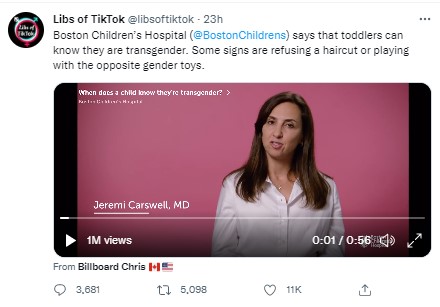Can Woke people even get along with each other? Apparently not. Aaron Sibarium reports on "Women Against Abuse."

"One of the largest domestic violence groups in the United States offered to pay "BIPOC" employees more than white ones; asked white staffers to sign a statement affirming their innate racism; and discouraged black abuse victims from calling the cops."
There are many more examples. Woke workplaces tend to destroy the ability to do meaningful work. A recent example is the meltdown at The Washington Post, featuring Felicia Sonmez. Here's what tends to happen when social justice warriors invade the workplace, as reported by Ricki Schlott. And if you'd like a lot more example of woeness destroying morale, check out this article by Ryan Grimm at The Intercept:
ELEPHANT IN THE ZOOM: Meltdowns Have Brought Progressive Advocacy Groups to a Standstill at a Critical Moment in World History. Here is an excerpt:
A Prism reporter reached a widely respected Guttmacher board member, Pamela Merritt, a Black woman and a leading reproductive justice activist, while the Supreme Court oral arguments in Dobbs v. Jackson Women’s Health Organization were going on last December, a year and a half after the Floyd meeting. She offered the most delicate rebuttal of the staff complaints possible.
“I have been in this movement space long enough to respect how people choose to describe their personal experience and validate that experience, even if I don’t necessarily agree that that’s what they experienced,” Merritt said. “It seems like there’s a conflation between not reaching the conclusion that people want and not doing due diligence on the allegations, which simply is not true.” Boonstra did not respond to a request to talk from either Prism or The Intercept.
The six months since then have only seen a ratcheting up of the tension, with more internal disputes spilling into public and amplified by a well-funded, anonymous operation called ReproJobs, whose Twitter and Instagram feeds have pounded away at the organization’s management. “If your reproductive justice organization isn’t Black and brown it’s white supremacy in heels co-opting a WOC movement,” blared a typical missive submitted to and republished on one of its Instagram stories. The news, in May 2022, that Roe v. Wade would almost certainly be overturned did nothing to temper the raging battle. (ReproJobs told The Intercept its current budget is around $275,000.)
That the institute has spent the course of the Biden administration paralyzed makes it typical of not just the abortion rights community — Planned Parenthood, NARAL Pro-Choice America, and other reproductive health organizations had similarly been locked in knock-down, drag-out fights between competing factions of their organizations, most often breaking down along staff-versus-management lines. It’s also true of the progressive advocacy space across the board, which has, more or less, effectively ceased to function. The Sierra Club, Demos, the American Civil Liberties Union, Color of Change, the Movement for Black Lives, Human Rights Campaign, Time’s Up, the Sunrise Movement, and many other organizations have seen wrenching and debilitating turmoil in the past couple years.
In fact, it’s hard to find a Washington-based progressive organization that hasn’t been in tumult, or isn’t currently in tumult. It even reached the National Audubon Society . . .
[More . . . ]


